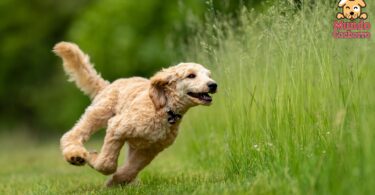Training a dog to relieve itself outside is a fundamental aspect of pet care. Although it may take time and patience, it is an achievable process with the right strategy. Your dog will learn to urinate outside quickly.
Indice
Remember that dogs are very intelligent animals, so learning to urinate outside can be an easy task for them.
Teaching your dog to urinate outside the home
Here are some tips to help you teach your dog to urinate outside effectively.
- Establish a regular schedule: Dogs thrive on routine. Establish regular times to take your dog out to relieve himself, such as after waking up, after eating and before going to bed. This will help your dog anticipate when it is the right time to relieve himself.
- Praise and reward: Celebrate and reward your dog every time he does his business outside. Use verbal praise, petting or even treats to positively reinforce their behavior. The association between urinating outside and receiving rewards will increase the likelihood of repeating this behavior.
- Patience and consistency: Training takes time, and each dog has its own learning pace. Maintain patience and consistency in your approach. Do not be discouraged by occasional setbacks, as these are normal during the learning process.
- Take him to the same place: Take your dog to the same place every time you take him out to relieve himself. The residual odor can help your dog associate that place with the act of urinating. This also makes it easier for your dog to recognize his designated place to relieve himself.
- Constant supervision: Keep an eye on your dog, especially during the initial stages of training. Whenever he is indoors, monitor him closely and watch for signs that he needs to go to the bathroom, such as circling, sniffing or going to the door.
- Avoid punishment: Never punish your dog for relieving himself indoors. Punishments can generate fear or anxiety in your pet, hindering the training process and creating negative associations.
- Clean up accidents properly: If your dog has an accident indoors, clean the area with an enzymatic cleaner to completely remove the odor. This will prevent your dog from being attracted to the same place to relieve himself again.
- Consider age and retention ability: Puppies and older dogs may have a limited ability to hold urine for long periods. Adjust your expectations and be supportive during training, offering more frequent outings if necessary.
Patience and positive reinforcement
In conclusion, teaching your dog to urinate outside requires patience, consistency and positive reinforcement. With an understanding and dedicated approach, you can help your dog learn this crucial skill, strengthening the bond between the two of you and improving his quality of life.
Image courtesy of https://pixabay.com, all rights reserved.







